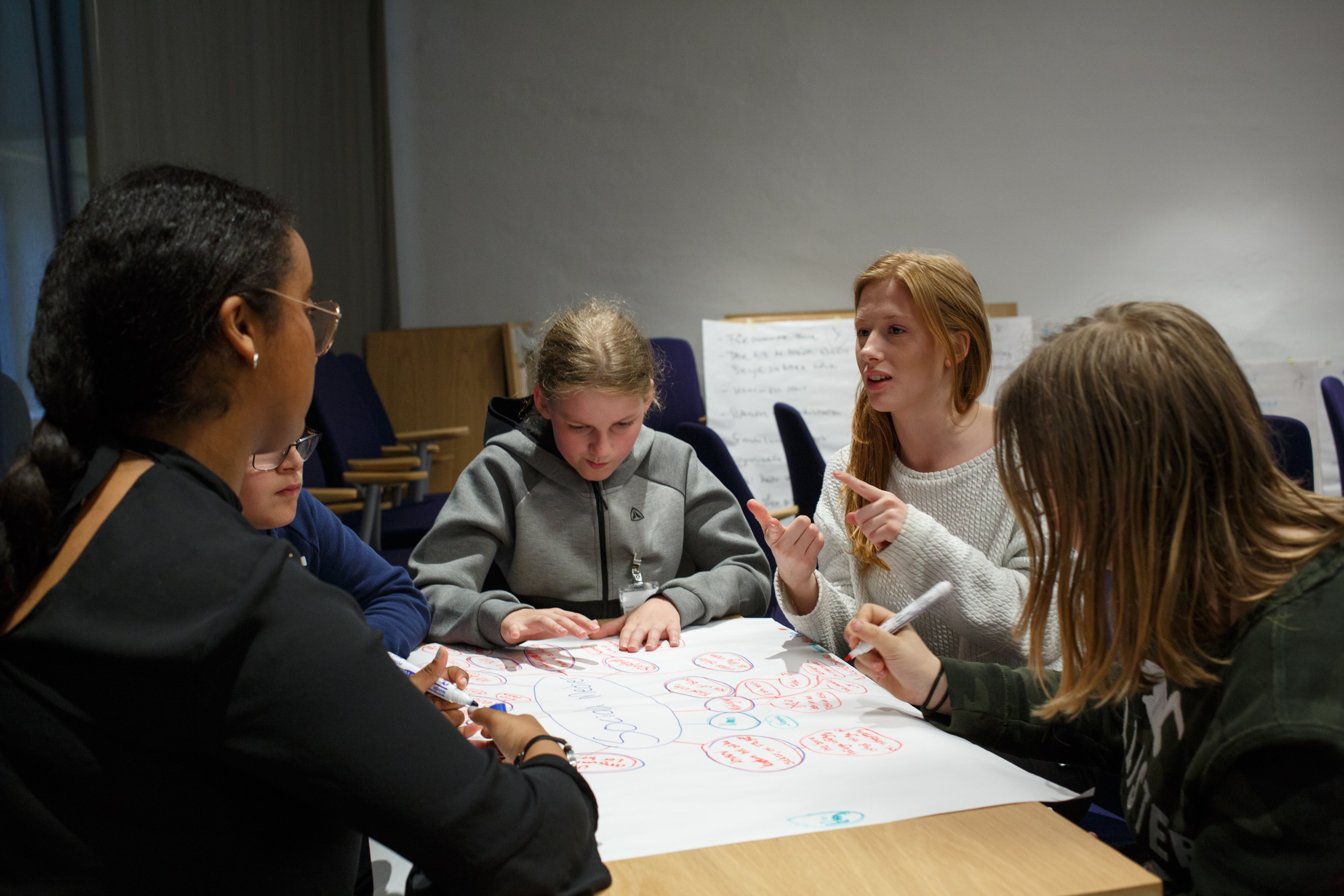Author: Ben Greenwood
Posted: 16 Dec 2019
Estimated time to read: 6 mins
In 2013, Ofsted highlighted a connection between outstanding schools and the provision of high quality PSHE lessons. Back then it was a sign of intent, a signal to schools to look ahead and to begin considering PSHE as a fully fledged subject that demands to be taken seriously.
Since then, most aspects of PSHE have become mandatory under statutory guidelines, with just relationship and sex education left as optional. However, at the start of the next academic year, it will become compulsory for students to attend sex and relationship based lessons.
So what does this mean for students, parents and teachers? What will be taught in PSHE, what does the law state? What rights do parents have and how does all of this coincide with Ofsted?
What is PSHE?
PSHE or Personal, Social, Health and Economic Education is an area of education that has continued to rise in credibility since its inception, in 2000. It was developed with the purpose of targeting these topics and providing students with appropriate information that will help turn them into well-rounded,worldly students. Promoting this type of development alongside academic studies effectively prepares them for their future.
What is taught in PSHE?
As its name suggests, plenty of topics fall under the umbrella of PSHE.
Lessons topics often include:
- Abortions and responsibility
- Addictions - Gambling, sex, drugs and alcohol
- Adolescent health - diet, sexual health, exercise and puberty
- Alcohol effects and abuse
- Animal rights and abuse
- Euthanasia and assisted suicide
- Bereavement and coping with loss
- Biotechnology, cloning and stem cells
- Body dysmorphia, eating disorders and anorexia
- Bullying, online and in real life
- Business, finance and consumerism
- Drug use and abuse
- Censorship, privacy and the internet
- Child abuse and Child labour
- Citizenship, Class and mobility in the UK
- Climate change and environmental science
- Crime and justice and domestic abuse
- Critical thinking
- Disability and inclusion
- Families and parenting in the 21st century
- Government and democracy
- Homelessness, housing and poverty
- Mental health - Depression, anxiety and burnout
- Migration and immigration
- Racism, xenophobia and discrimination
- Religion and cultural studies
- Sexuality, sex education and reproduction
- Sustainability and renewable energy
- Sexism, sexualisation and gender equality
- Sexuality and gender
- Social media and mental health
- Travel and tourism
- Waste and recycling
These topics are intended to tackle the issues that surround students today. They look at new problems and age old issues that face citizens both in the UK and around the world, providing them with actionable lessons they can use in later life.

Why is PSHE important for Ofsted?
Ofsted’s new framework has been a real shakeup for UK schools, with amended inspection criteria and a brand new key judgement, the new Ofsted framework promises to put the curriculum at the front and centre of the grading process.
In the new framework, Ofsted will look further into the design, implementation and impact of the school’s curriculum and judge the effectiveness of each area as a key part of the new ‘quality of education’ judgement. This puts every part of the compulsory national curriculum under the magnifying glass.
When it becomes a mandatory subject in the national curriculum next year, schools will need to show that they are teaching PSHE thoroughly and covering the topics stipulated in the national curriculum, or risk falling short in Ofsted inspections.
The Importance of Relationships and Sex Education
Most areas of PSHE are already compulsory. ‘Personal development’ has been a statutory part of the curriculum, and consequently part of Ofsted’s criteria, since 2010. But as of 2020, Health Education and Relationships and Sex Educaion (RSE) will be added to the list. It’s the final section of PSHE to be made a legal requirement and schools will have to show that they can provide adequate PSHE lessons that meet the necessary standards.
RSE is already taught in 85% of UK schools, so the 2020 changes shouldn’t be too much of a revolution for most. The change is seen by the DfE as being more about raising a standard that already exists in most schools, so that it exists in all schools, bringing 15% of schools that don’t currently prioritise RSE in line with the rest of the country.
Creating an RSE policy
An RSE policy is a necessity and should reflect both the requirements of the upcoming 2020 national curriculum and the approach your school wants to take in educating students about sexuality, gender and the experiences of those who are LGBTQ. They should also learn about sexual health and how to stay protected during sex, as well as their responsibility in relationships, pregnancy or abortion.
The policy should explain the school’s protocol surrounding the right to withdraw and include a section that explains when that right will no longer be valid next year. It should discuss the materials used to teach students in the classroom and what would be expected of them in terms of behaviour and respect.
Remember to update the policy regularly to allow for any changes in the curriculum and to include a date stamp of the last time it was updated for future reference. This ensures that the policy is always relevant and up to date.
For more help with your RSE policy, download our RSE policy checklist.

What is statutory guidance on PSHE?
Statutory guidance is used to tell local authorities and schools what must be done to comply with the law on curriculum and assessment, behaviour, attendance and more. It’s a set of legally backed guidelines for schools that hold them to a national standard. The curriculum section of the DfE’s statutory guidance covers each subject area, like English and Maths and PSHE which is labelled ‘Citizenship’.
The statutory guidance provides requirements for each subject for all of the key stages, with expectations on what should be taught to each key stage and which subjects are deemed acceptable learning for each respective year group.
For example, the official statutory guidance on Citizenship for key stage 4 states that, “Pupils should develop their skills to be able to use a range of research strategies, weigh up evidence, make persuasive arguments and substantiate their conclusions. They should experience and evaluate different ways that citizens can act together to solve problems and contribute to society.”
Engaging with parents
Meeting and speaking with parents is an important part of the job, especially for subjects that are sensitive, as many areas of PSHE are. Currently, parents still have the right to withdraw their child from RSE if they wish. This will cease in September 2020 when RSE becomes part of the national curriculum.
Schools are required to consult with parents over RSE policy, to help form an acceptable curriculum. Whilst this gives parents the chance to have their say, it does not give them the power to veto subjects or change the course of the curriculum.
Ensure that parents are aware of this and reassure them that the contents of the lessons their child is being taught are set out by the government in order to give students a safe and useful education. If parents still don’t want their child to participate in RSE next academic year, their only option is to remove their child from the school, as missing these lessons will be seen as truancy.
To conclude
As we continue to move forward in education, one thing is clear. PSHE is going to play a much bigger part in education. It’s the most effective way for teachers to fight the discrimination and hostility that seems to have grown worldwide in recent times, giving each generation more chance of bringing society together, rather than tearing it apart. It’s the most effective way to tackle mental health issues, to reduce underage pregnancies, to increase life expectancy and let students lead longer, healthier lives.
Whilst it might not have been deemed as important in the past, PSHE might just hold the key to a brighter future. And now that it's been recognised by Ofsted, schools will be working to give students the kind of guidance they need to make it happen.


